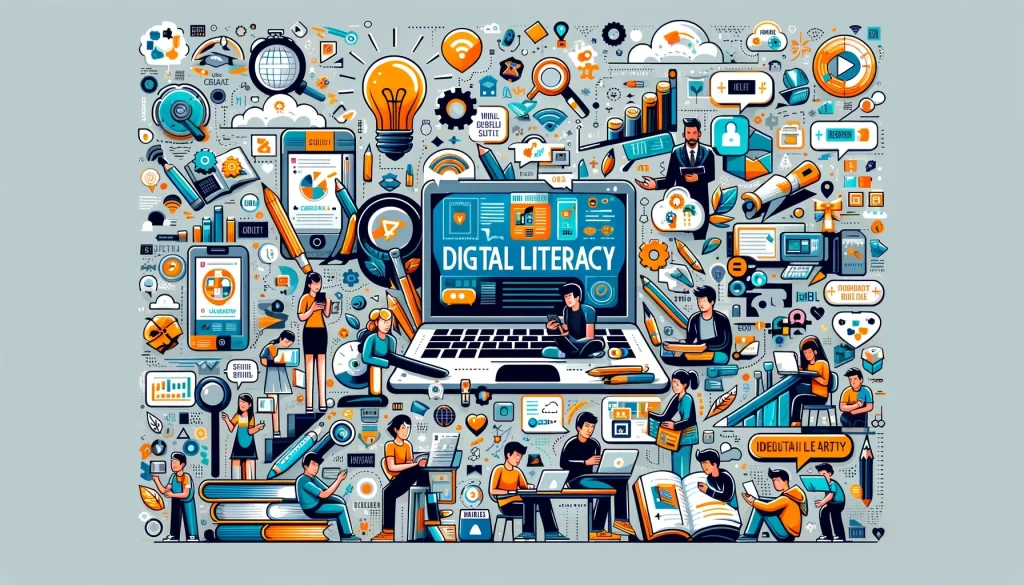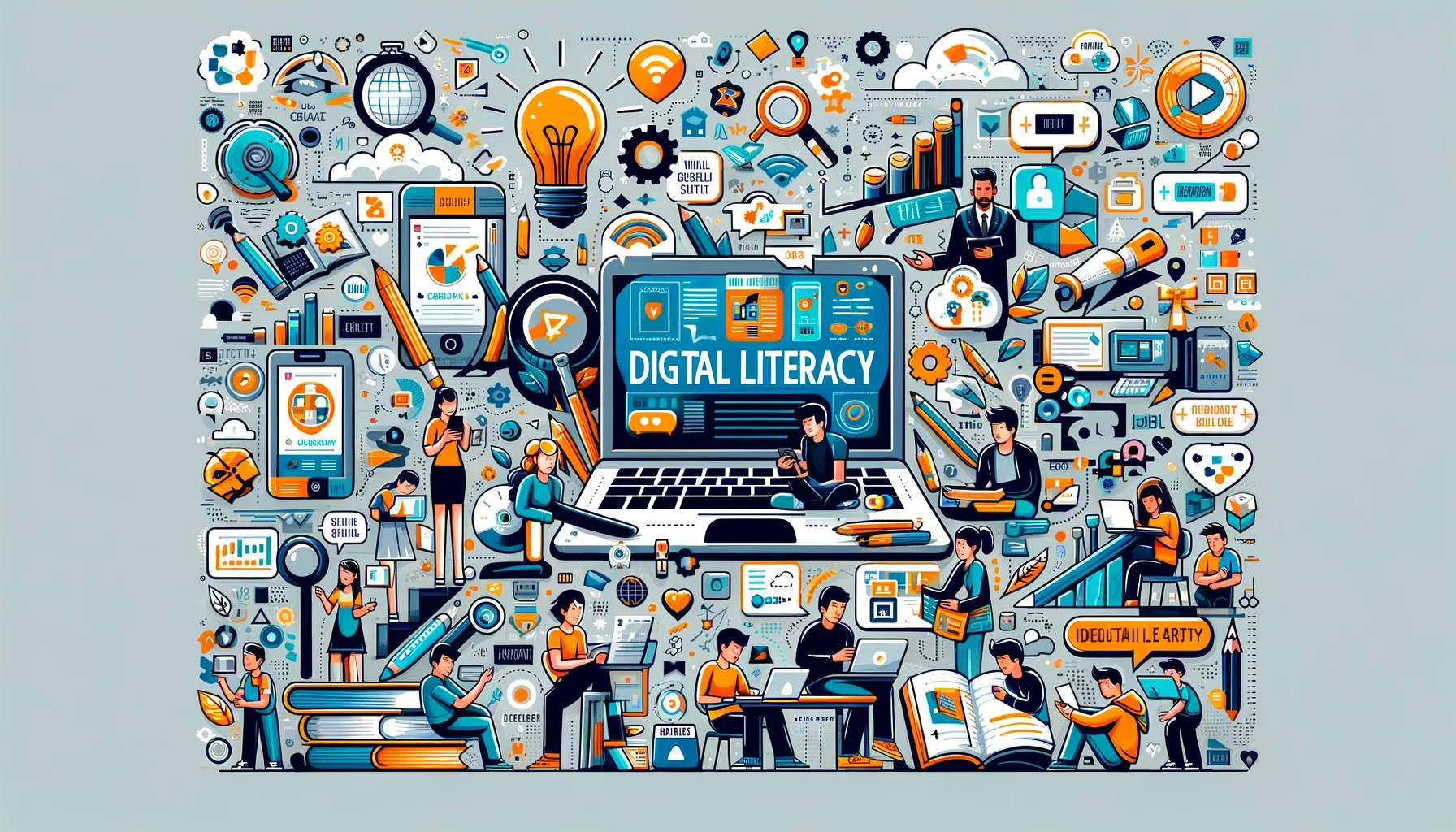In the ever-evolving digital landscape, digital literacy has become as fundamental as traditional literacy. For students, mastering digital skills is not merely beneficial—it is essential for their success in both academic and future career pursuits. This comprehensive guide delves into the importance of digital literacy and why it is a critical competency every student needs today.
Introduction to Digital Literacy
Digital literacy refers to an individual’s ability to find, evaluate, and compose clear information through writing and other mediums on various digital platforms. It is about understanding and using technology effectively and responsibly.
Why Digital Literacy is Essential for Students
- Navigating the Information Overload: In our digital world, information is abundant. Digital literacy teaches students how to discern reliable from unreliable sources, a crucial skill in navigating the vast amounts of information online.
- Enhancing Learning Experiences: Digital tools offer expansive learning opportunities. From interactive simulations to online libraries, digital literacy enables students to leverage these tools to enhance their learning.
- Preparation for the Future Workplace: As workplaces evolve, the demand for digital competence is at an all-time high. Students today are preparing for jobs that require proficiency in digital communication and tools.
Key Components of Digital Literacy
- Information Literacy: Ability to evaluate the credibility and relevance of information sources.
- Computer Literacy: Understanding how to operate computers and other technological devices.
- Communication Literacy: Skills in effectively communicating and collaborating through digital platforms.
- Media Literacy: Understanding media contexts and creating digital content.
- Technology Literacy: Ability to manage, understand, and manipulate digital technologies.

Strategies to Enhance Digital Literacy
- Integrating Technology in Education: Schools must integrate technology across all subjects, not just computer science, to provide students with regular and diverse interactions with technology.
- Promoting Critical Thinking: Encourage students to critically assess the information they consume online.
- Encouraging Digital Creation: Provide students with opportunities to create digital content, not just consume it.
- Teaching Online Safety: Educating students about online safety and ethical behavior is crucial in their development as digital citizens.
The Role of Educators
Educators play a pivotal role in developing digital literacy. Professional development in digital technologies and pedagogies enables teachers to guide students effectively in becoming proficient digital citizens.
Challenges to Digital Literacy
While digital literacy opens vast opportunities, it also poses challenges such as digital divide, privacy concerns, and the need for constant upskilling. Addressing these challenges is essential for equitable digital literacy education.
Conclusion
Digital literacy is not just a skill but a necessity for students in today’s digital world. By fostering these skills, we prepare students not just to participate in the digital world but to excel in it. As educators, policymakers, and communities, supporting the development of digital literacy is one of the most significant investments we can make in our future generation.

